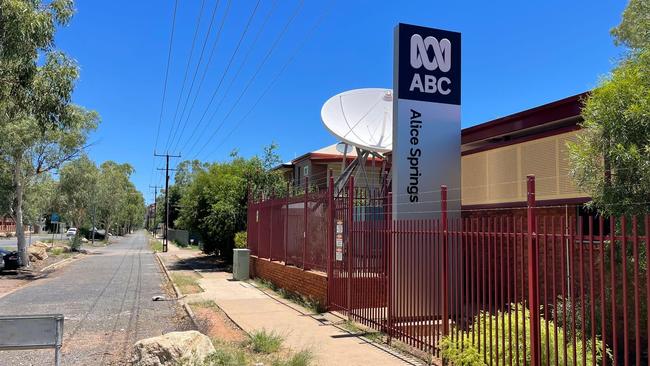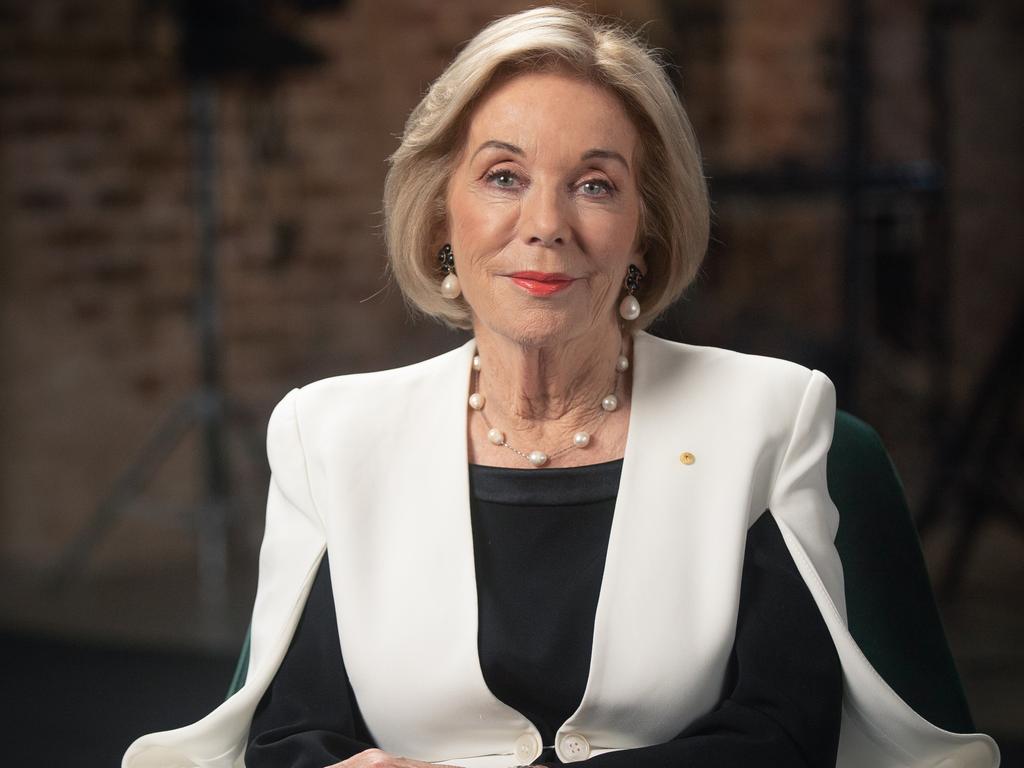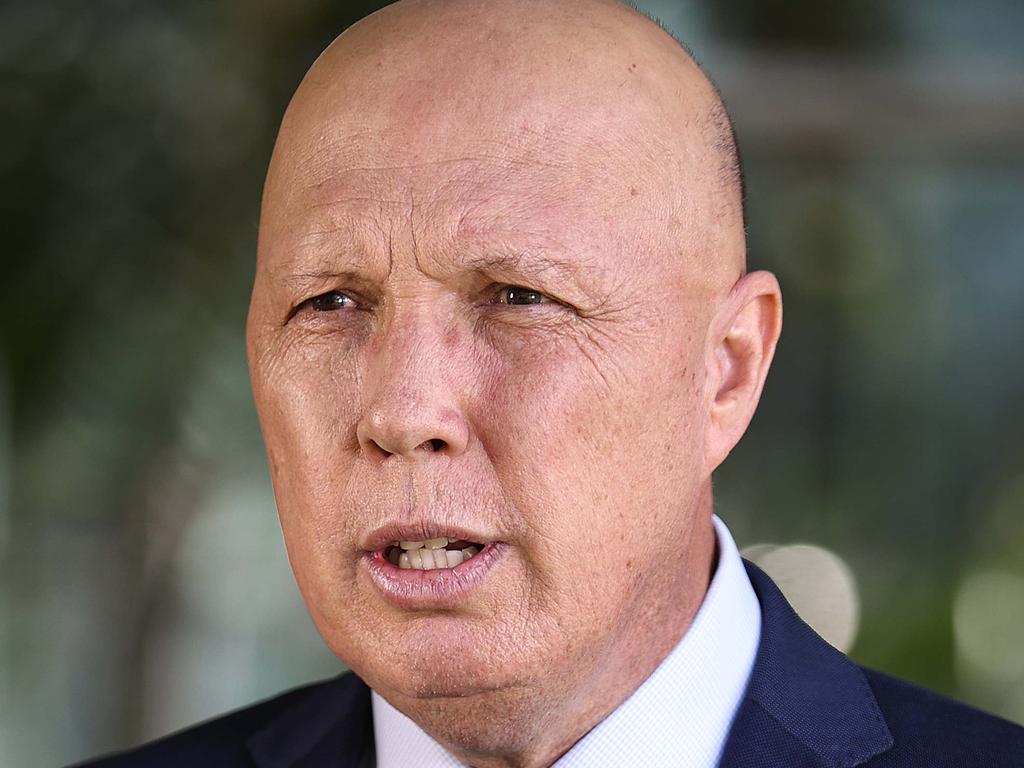ABC’s Alice Springs ‘apology’ stirs more anger
The ABC’s coverage of the unrest in Alice Springs will be reviewed at the public broadcaster’s upcoming board meeting.

The ABC’s coverage of the unrest in Alice Springs will be reviewed at the public broadcaster’s upcoming board meeting, after senior management issued an extraordinary apology at the weekend for the media organisation’s “incomplete” reporting on the crisis that has gripped the remote town.
The taxpayer-funded broadcaster was swamped with criticism last week for airing claims on Tuesday that there were displays of “white supremacy” at an Alice Springs community meeting attended by thousands of members of the local community, Indigenous and non-Indigenous.
The ABC’s apology acknowledged that the broadcaster “did not adequately cover the full context of the meeting or the range of perspectives expressed at it”.
“ABC News apologises to audiences for providing an incomplete picture of the event in this instance. ABC News management takes responsibility,” the statement said.
Communications Minister Michelle Rowland, who rarely comments on editorial matters at the ABC, told The Australian on Sunday: “I welcome the clear statement that has been made by the ABC, as a result of their internal complaints process.”
The ombudsman, Fiona Cameron, who has been overseeing the complaints-handling process at the ABC since her appointment last September, confirmed to The Australian that she was reviewing the matter, and would present her findings to the board in due course.
Alice Springs mayor Matt Paterson said the ABC’s apology didn’t go far enough, as the offending reports could still be accessed on the public broadcaster’s various digital platforms, albeit with an “editor’s note” acknowledging mistakes.
In a letter on Friday to ABC chair Ita Buttrose, which The Australian has seen, Mr Paterson said the broadcaster’s reporting from the town “did not reflect the meeting in a true manner but instead painted it as a gathering of ‘white supremacists’ and offered a disgraceful lack of balance”.
“Our community is hurting and national coverage such as this only furthers that hurt,” he wrote.
On Sunday, he added: “I want the articles retracted, you can’t say you’ve done the wrong thing and then leave it there.
“The problem now is that the ABC has taken the story away from the actual issues we are facing in Alice Springs and that’s the most disappointing part of it all.”
When asked whether the ABC would remove the offending reports from its platforms, an ABC spokesman said: “If we have any further comment, we will come back to you.”
Opposition communications spokeswoman Sarah Henderson also sent a letter to ABC management over the broadcaster’s reporting from the forum. In the letter to managing director David Anderson on Sunday, she noted that the ABC had initially stood by its “shockingly biased, inaccurate and offensive” reporting – the broadcaster publicly stated early last week that it “didn’t shy away” from airing confronting opinions – but retreated from that position when the public outcry got louder.
“The ABC must also explain the basis for its first response and why the report inexplicably remains online, albeit with a clarifying note, which is tone deaf to the ABC’s failings and completely unacceptable,” Ms Henderson said.
“I will be asking the Australian Communications and Media Authority, which has a discretionary power to investigate a complaint, to investigate whether the ABC has breached its code of practice.
”Upon the finding of a breach, ACMA has the power to recommend that the ABC takes certain actions such as implementing improved journalistic training and removing the report from its website.”
Another headache for senior ABC management is the seething disquiet among sections of the broadcaster’s journalistic ranks.
The Australian has spoken to numerous insiders who claim ABC journalists are split over the coverage of the Alice Springs crisis, with many local employees furious about reports compiled by the national media.
Multiple sources, who did not wish to be named, said the dozen or so Alice Springs-based ABC reporters remained “upset” and “angry” following the airing of stories from the community meeting.
“You can’t call something a ‘white supremacy’ rally if it isn’t one,” one Alice Springs insider said.
“The question is: where is the editorial oversight and management to guide this?
“The Territory is quite different to the rest of Australia, particularly Sydney, and you can’t come here for a few days and understand local issues.
“It’s been quite upsetting for the local ABC bureau to see this reporting and the backlash that it’s caused.
“The problematic reporting undoes all the good will that the ABC built up in the community over decades.
“It can all be undone by a fly-in reporter.”
On Tuesday morning, Alice Springs breakfast presenter Stewart Brash was forced to defend the work of local ABC staff during his program after receiving multiple calls and texts from listeners refuting the ABC’s version of what unfolded at the forum.
“It does sound like a lot of you don’t think it fully reflected what you saw and what was said yesterday,” he said on air.
“ I certainly have tried to do my bit so hopefully we are reflecting it here on ABC local radio as it was and it will continue to be.
“At the end of the day, national media will leave and we’ll still be here.”
It’s understood that a formal complaint was made by staff based in the ABC’s Alice Springs bureau to Mr Anderson, who is based in Ultimo, in inner-city Sydney.






To join the conversation, please log in. Don't have an account? Register
Join the conversation, you are commenting as Logout